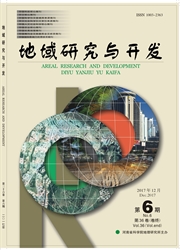

 中文摘要:
中文摘要:
在20世纪90年代兴起的怀旧旅游热潮背景下,以知青群体为研究对象,基于深入访谈和问卷调查数据,利用SPSS和AMOS软件进行数据处理和分析,揭示出知青怀旧旅游的基本特征;采用因子分析法分别得到怀旧情感、地方依恋和活动偏好3个变量的构成因素,探讨了知青的怀旧情感、地方依恋、活动偏好和旅游意愿之间的关系。结果表明:知青在下乡地的怀旧旅游具有组团特征明显、重游率高、住宿方式较为特殊且与当地居民联系紧密等特征。知青对下乡地的怀旧情感显著且正向影响地方依恋、活动偏好和旅游意愿,而地方依恋对活动偏好和旅游意愿仅有微弱的正向影响。
 英文摘要:
英文摘要:
Based on the Nostalgia tourism trend rised in 1990s , with 386 online questionnaires, the article at-tempts to develop a quantitative study of Zhiqing ^ s nostalgia tourism and to explore the relationship between Zhiqing group and their nostalgic places. Factor analysis are used in the research. By constructing SEM among variables basedon consumer nostalgia and place attachment theory, the article explores the effects among nostalgia emotion, place at-tachment ,activity preference and tourism willingness. Main conclusions include : Zhiqing, s nostalgia tourism has some characteristics as follows: organized Zhiqing teams, high revisit rate, special accommodations, closer contact with local residents. Zhiqing^ nostalgia tourism preference can be divided into three types: preference for personal experience activity, preference for Zhiqing culture activity, preference for activity around the place. Zhiqing, s nostal-gia emotion significantly and positively influences place attachment, activity preference and tourism willingness, while, Zhiqing^ place attachment weakly and positively influences activity preference and tourism willingness.
 同期刊论文项目
同期刊论文项目
 同项目期刊论文
同项目期刊论文
 期刊信息
期刊信息
